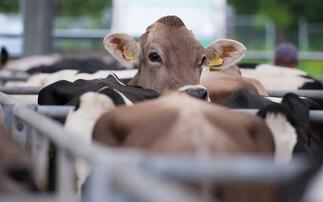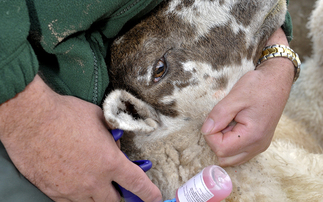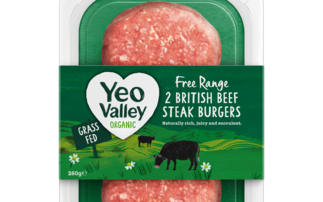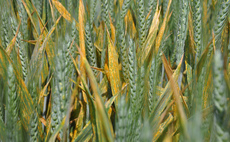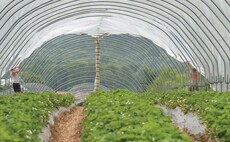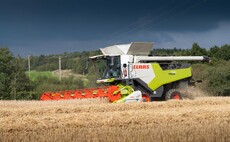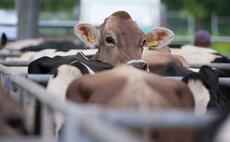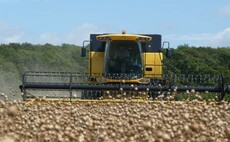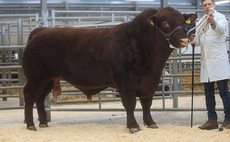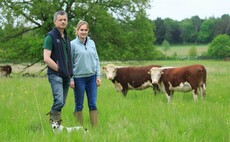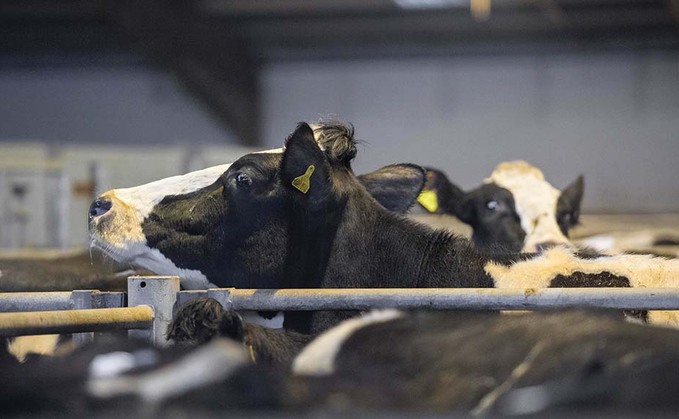
In the first in a series looking at how markets have stood the test of time, supported by the Livestock Auctioneers Association and Shearwell, we look at how they have evolved, adapted and thrived.
Over the past 200 years, marts have faced many challenges and have prevailed through war, disease and recession, and most recently have needed to find new ways of operating throughout the coronavirus pandemic.
The fact that the live auction mart system has survived is testament to how much farmers value and support markets, recognising that it is a fair and transparent way of selling livestock which is governed by supply and demand.
Marts also play an important role both economically and socially within the wider rural community.
Marts have evolved, as has the whole of the livestock sector, and long gone are the days when every small town had its own market. Better transport links and larger vehicles have meant animals can be moved around easily reducing the need for as many markets.
The economics of running small town centre sites on valuable redevelopment lands has also forced some out of business, but many have relocated to bigger, better sites creating agricultural hubs out of town.
This has enabled them to create more sustainable business models by increasing the range of sales they offer and securing additional rental income from other associated businesses located on the same site.
The foot and mouth outbreak of 2001 saw markets completely closed for almost 13 months with very limited trade or movement of animals. While it was the final blow for some markets, against the predictions of many, the market system as a whole, survived and has thrived since.
Ironically, it is not animal, but human disease which has proved to be the latest challenge for livestock markets to overcome.
But as the coronavirus crisis developed, amid the following chaos, the LAA and the IAAS secured agreement from government that markets could remain open, initially only to sell primestock and store stock, but more recently some breeding stock, albeit under strictly regulated conditions, acknowledging their vital role in the food supply chain.
Regulations
Under strict regulations and with ‘drop and go' protocols in place for vendors and only genuine buyers observing social distancing allowed markets have continued to trade, once again showing their resilience and ability to adapt.
Chris Dodds, executive secretary of the LAA says: "This is a different situation to the 2001 foot and mouth outbreak when we lost millions of sheep and a huge number of cattle and markets were closed.
"By being able to remain open LAA member auctions have created stability in the marketplace. Competition is essential in assuring a fair and transparent trade, reflective of supply and demand for the product at the time of sale and is why, for example, the price of store cattle has remained so strong when the prime price has been so poor.
"Auctioneers are the only link in agriculture where their returns are governed by the price of the animals sold,, the better the price the more they earn and therefore the better the price for the farmer. The red meat sector is very fortunate in this respect.
"Vendors have accepted the current restrictions well and buyers are commenting how pleased they are that everyone is sticking to the rules, as it makes them feel safe, and therefore still prepared to attend markets."
John Geldard, farmer and a director of North West Auctions, says: "Foot and mouth could have been the demise of the markets but farmers clearly understood their value and importance and continued to support them.
"Twenty years on a lot of younger farmers do not remember what happen then when there were no markets, so in some ways this is a wake-up call as to their value.
"The Livestock Auctioneers Association (LAA) moved very quickly in ensuring markets could stay open when most of the country was closed down.
"Things will slowly move back to normal. People have been abiding by the rules and social distancing, but it will be nice when we can get the social aspect of markets back. Many people go to market just to meet others and this is vitally important for the social wellbeing of our industry.
"This is an opportunity to move forward. The whole industry has to realise the value of live markets and auction companies have to work together.
"I was involved with the merger of Lancaster and Kendal marts and more of this will happen. Directors and companies have to look at opportunities for the industry as a whole not just their own individual businesses. We are working for the next generation and the future of the industry."
What has emerged from this situation is the willingness of auction companies, vendors and buyers to embrace technology to ensure additional sales can take place in various online formats.
Mr Dodds says: "Auctioneers have put a lot of effort into selling the concept of using online trading platforms while the restrictions are in place, but ideally buyers want to be able to see the animals in the flesh. While it is likely to be a long time before we get back to ‘normal' ultimately selling through the live ring is the preferred option for most people.
"When restrictions are lifted I think we will continue to see some electronic auctions, but only for limited specialist categories of livestock, although the opportunities may be greater for other sales, such as machinery."
Technology
Newline ASP provides auction management software for a large number of the markets in the UK. The company's joint managing partner, Paul-Cristian Jones says: "We have a series of tools we can offer markets to use alongside their normal trading systems.
"One option is live streaming of sales. We have been doing this for some time and it has been useful, for example, in Orkney where farmers from other islands have sent stock over to the market, but then can watch the sale from home.
"With the ‘drop and go' system now in place everywhere, live streaming enables farmers to go home and watch the sale from their phone, tablet or other device."
Live sale internet bidding internal bidding is another option where buyers can watch the live sale remotely and bid via the internet.
Mr Jones says: "This system has been used for some pedigree and specialist sales for about five years, but demand has really gathered pace in recent weeks, with some markets now using it for commercial sales as well.
"It worked very well in the Republic of Ireland and Northern Ireland where initially markets closed and when they reopened no buyers were allowed to be present so all bids had to be done remotely."
The most recent tool to be developed is the online timed auction system whereby a sale runs online for a period of time with buyers able to make bids remotely.
Mr Jones says: "This system allows buyers access to a whole host of information with links to catalogues, photos, videos and pedigree websites. It is being used for all types of sales including pedigree livestock, machinery, dogs and dispersals.
"It enables buyers and sellers to trade through trusted channels - the auction company, which gives them confidence.
"It is a testament to the LAA and its relationship with the government that markets have been able to remain open as they have done.
But the most important thing is that we get the live ring back into action in more normal circumstances, as soon as possible, as this is the fairest and most transparent way of selling stock."
Online timed auction the buyer
Stephen Hough, Pontefract, bought a pedigree British Blue heifer at the society's timed auction hosted by Harrison and Hetherington. He says: "I liked the system and thought it worked very well.
It does give you more time to think about and consider what you are buying without having to make that instant decision in the market as to whether to bid more.
"The down side is that you are buying from a photo or video, so you also need physical measurements and with pedigree stock the breeding is also obviously important, as is health status.
"The heifer I bought was from a renowned breeder and proven bloodlines. "Also you do not have to spend a day going to the market, although I must admit I did miss the craic and the theatre of the market.
"I think this type of sale will have a place in the future. Things will not go back to exactly how they were before and this does give access to a much wider audience."
Timed online auctions the vendor
James Cooper, Tomschoice Limousins, Harrogate, used the timed auction platform hosted by CCM at Skipton to sell a pedigree bull. He says: "In the current circumstances, it was a good substitute for a live auction. The system worked very well, given how quickly it was set up.
"Ideally, selling pedigree bulls you need to see and talk to people face to face. Bulls are not just commodities. Whilst photos and videos work well, they are not the same as being able to see and handle an animal in the flesh.''
"We also used FG Buy and Sell and again this generated interest in our stock. As a result of both of these options we have made contact with potential buyers we would not have done otherwise.
Some have visited the farm to see stock, observing social distancing, and I think this will generate more business in the longer term, so in the round they have been a good marketing tool."












